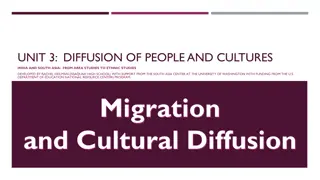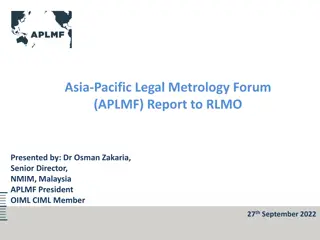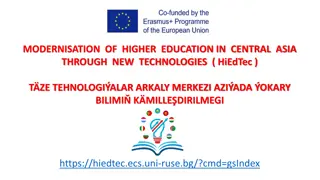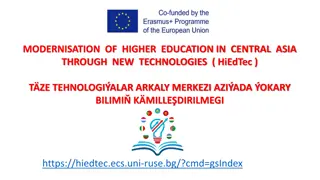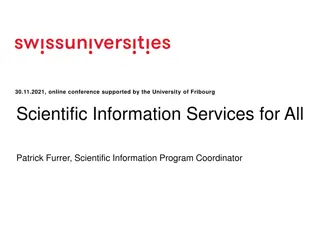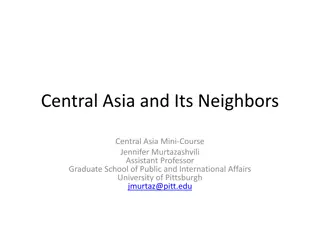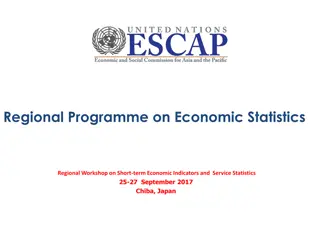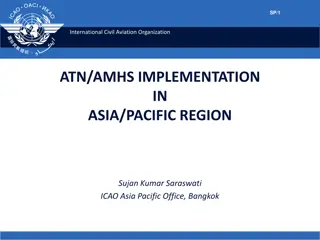Strategies for Enhancing Scientific Collaboration in South Asia
This content highlights the objectives of intra-regional co-operation to promote R&D in structural chemistry and biology, address science, technology, and innovation issues, create platforms for young scientists, foster academia-industry contacts in pharmaceuticals, and share best practices within the South Asia region. It discusses the challenges faced by the region, such as internal conflicts and limited trade, and emphasizes the changing landscape of scientific enterprise towards collaborative, multidisciplinary research to address societal issues. Strategies to promote collaboration include creating avenues for young scientists, facilitating industrial-academic platforms, leveraging funding agencies, and advocating for dedicated research funding mechanisms.
Download Presentation

Please find below an Image/Link to download the presentation.
The content on the website is provided AS IS for your information and personal use only. It may not be sold, licensed, or shared on other websites without obtaining consent from the author. Download presentation by click this link. If you encounter any issues during the download, it is possible that the publisher has removed the file from their server.
E N D
Presentation Transcript
INTRA REGIONAL CO-OPERATION OBJECTIVES Promote R&D in structural chemistry and biology and chemistry biology interface Address issues related to Science, Technology and Innovation in region s economic development To provide a platform for young scientists to interact To foster academia- industry contacts in the area of drugs and pharmaceuticals Enhance mutual learning through sharing of experiences and best practices within the region
THE SOUTH ASIA REGION Internal strife and conflicts Baggage of history and geo-poltical compulsions Limited free trade and commerce Rivalry rather than healthy competition Yet, Endowed with immense natural wealth and enviable human resources Hope : In less than a decade this region will be home to over a billion people who would have been born after 1990 Who will carry no memory or baggage of the past
THE CHANGING CONTOURS OF SCIENTIFIC ENTERPRISE Single investigator and intellectually driven research is under pressure Science for science sake is increasingly difficult to sustain Solving large societal problems require collaborative efforts; purposeful research becoming multidisciplinary Public perception of science isat an all time low ironically at a time when all of us are touched by S&T every day of our lives Question: How do we balance the best of individually driven science with the societal demands that science address the major problems of the society?
MODES TO PROMOTE CO-OPERATION Create special avenues for young scientists to collaborate; ensure project funding covers international travel to neighboring countries Directory of young scientists of promise working in structural chemistry, natural products chemistry, chemistry-biology interface across our regions Facilitate round tables and platforms for industrial and academic scientists to come together on specific thematic issues and share common thoughts Leverage philanthropic funding agencies to create joint research teams from the region for addressing grand challenges Leverage more effectively the power of intergovernmental agencies ( IuCr, TWAS, UNESCO, Science Academies) to create enabling environments Advocacy within nations to ask their respective Governments to create dedicated funding mechanisms for research collaborations
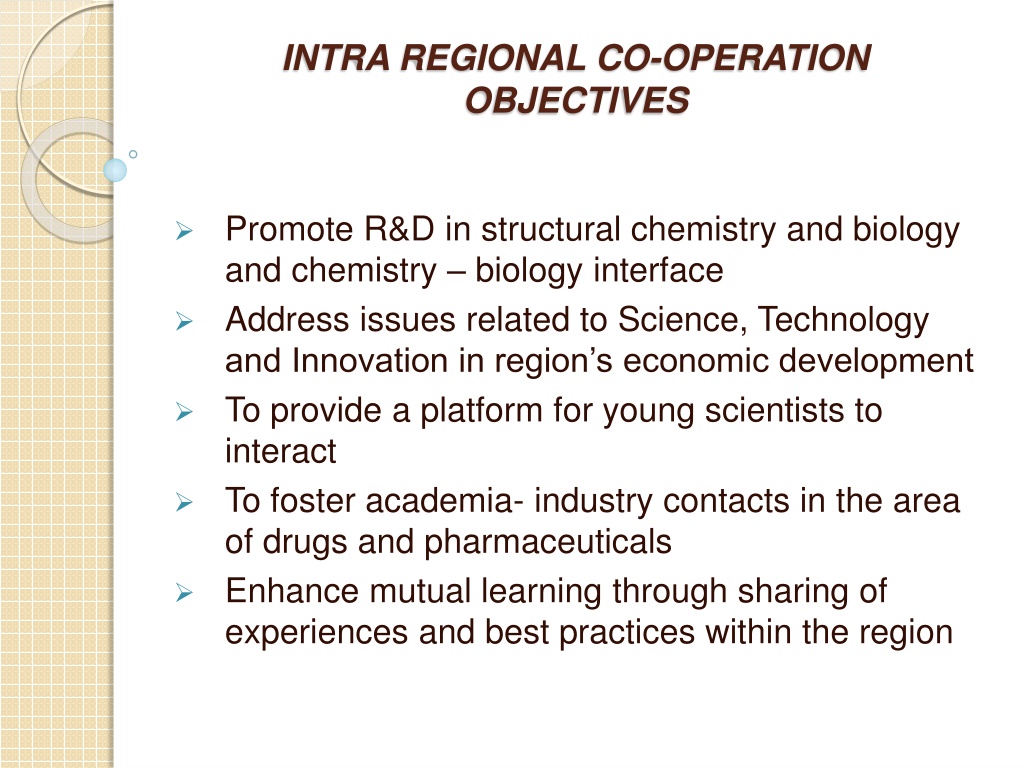

![READ⚡[PDF]✔ Emerging Space Powers: The New Space Programs of Asia, the Middle Ea](/thumb/21554/read-pdf-emerging-space-powers-the-new-space-programs-of-asia-the-middle-ea.jpg)



